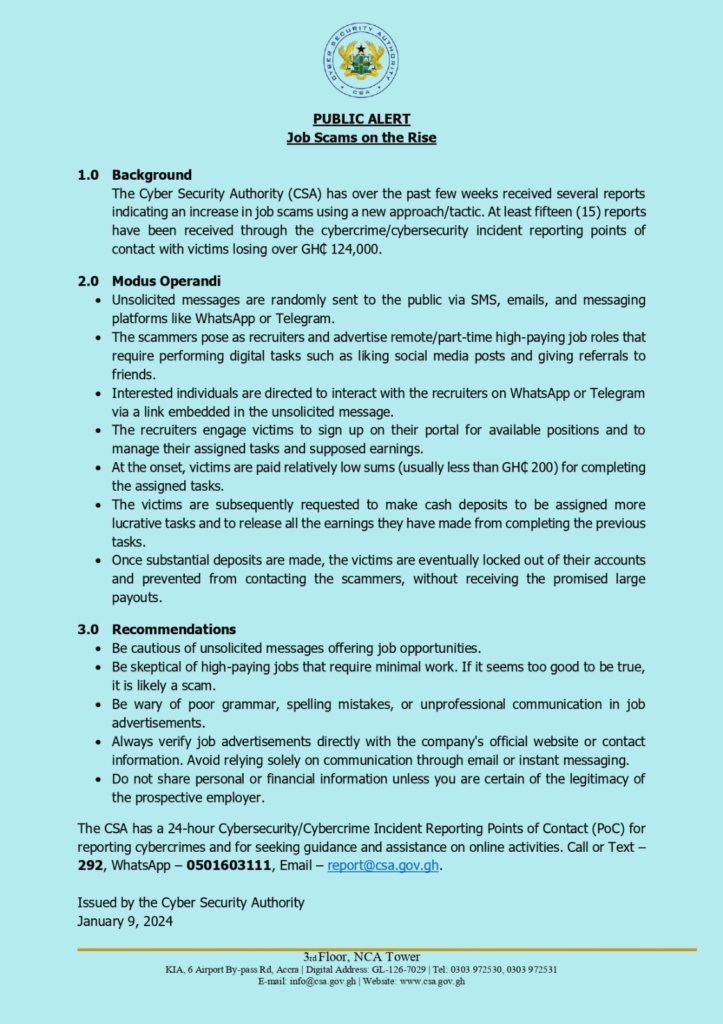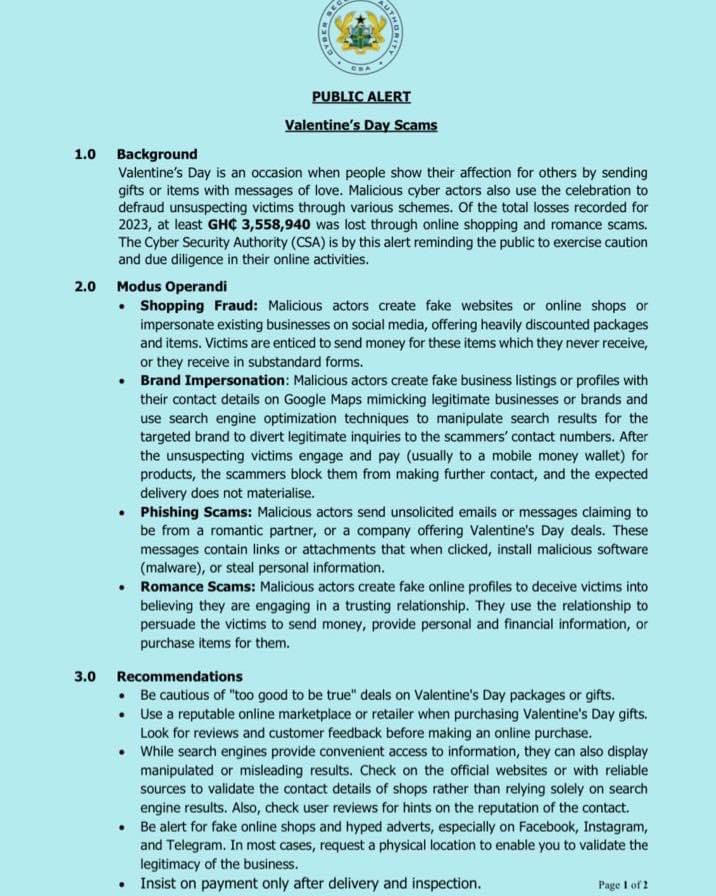
Banks in Ghana largely complied with the Bank’s Cyber and Information Security Directive issued in 2018, the Bank of Ghana‘s 2023 Annual Report and Financial Statement has said.
Under the directive, the report said, Regulated Financial Institutions (RFIs) were required to establish an Information Security Management System (ISMS) and attain ISO27001 certification to ensure information security, cybersecurity, and privacy protection.
Additionally, banks complied with the Payment Card Industry Data Security Standard (PCI DSS) requirements, the report stated.
“The Bank also established the Financial Industry Command Security Operations Center (FICSOC), in the review year, to continuously monitor cyber security threats,” it said.
Regarding losses of the Central bank, the report said that the Bank and the group reported a loss of GH¢10.50 billion for the year 2023, as against the GH¢60.86 billion loss in 2022.
As of 31 December 2023, the total liabilities of Bank of Ghana and its subsidiaries exceeded its total assets by GH¢65.36 billion also as a gaint GH¢54.52 billion deficit recorded in 2022.
In 2023, total operating income of the Bank and the Group increased by 47.3 per cent to GH¢8.80 billion,
This increase in operating income was driven to a large extent by interest earned on the Bank’s investments in securities and bonds held abroad, fines imposed on institutions for regulatory breaches, and fees and charges.
Total operating expenses of GH¢19.2 billion reported for 2023 shows a decline when compared with the GH¢66.9 billion recorded in 2022.
This was due to impairment charges on Loans and Advances and Bank of Ghana’s holding of Government of Ghana securities. In 2022, these two-line items accounted for GH¢54.5 billion in expense charges on account of the Domestic Debt Exchange Programme.
The combination of an increase in total income and reduction in operating expenses led to a total loss position of GH¢10.6 billion, representing an improvement when compared with the loss of GH¢60.9 billion recorded in 2022.
The loss position was driven largely by an increase in total interest expense incurred on Open Market Operations by GH¢ 6.7 billion.
The total cost of Open Market Operations (an activity by a central bank to exchange liquidity in its currency with a bank or a group of banks) in 2022 which stood at GH¢1.7 billion, increased to GH¢8.4 billion in 2023.
The increase in costs associated with open market operations for 2023 was driven in large part by the need to mop up excess liquidity in the economy in 2023 and to support the dis-inflation process envisaged in the overall macroeconomic adjustment program.
This Open Market Operations activity, which accounted for a significant portion of the loss incurred
yielded positive results.
The aggressive mopping up operations, contributed in slowing down inflation to 23.2 per cent by the end of 2023, significantly down from the rate of 54.1 per cent at the end of 2022.

The post Banks comply with BoG’s directives on cyber security first appeared on 3News.
Read Full Story

















Facebook
Twitter
Pinterest
Instagram
Google+
YouTube
LinkedIn
RSS